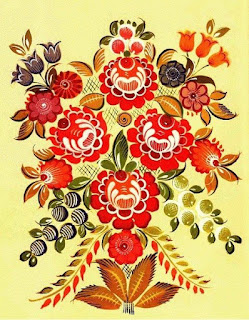Wednesday, November 1, 2017
Sunday, October 29, 2017
Saturday, October 28, 2017
Friday, October 27, 2017
Huichol art
Huichol art
Huichol art broadly groups the most traditional and most recent innovations in the folk art and handcrafts produced by the Huichol people, who live in the states of Jalisco, Durango, Zacatecas and Nayarit
in Mexico. The unifying factor of the work is the colorful decoration
using symbols and designs which date back centuries. The most common and
commercially successful products are “yarn paintings” and objects
decorated with small commercially produced beads. Yarn paintings consist
of commercial yarn pressed into boards coated with wax and resin and
are derived from a ceremonial tablet called a neirika. The Huichol have a
long history of beading, making the beads from clay, shells, corals,
seeds and more and using them to make jewelry and to decorate bowls and
other items. The “modern” beadwork usually consists of masks and wood
sculptures covered in small, brightly colored commercial beads fastened
with wax and resin.
While the materials have changed and the purpose of many of the items
have changed from religious to commercial purposes, the designs have
changed little, and many retain their religious and symbolic
significance. Most outsiders experience Huichol art as tourists in areas
such as Guadalajara and Puerto Vallarta,
without knowing anything about the people who make the items, and the
meanings of the designs. There are some notable Huichol artists in the
yarn painting and beadwork fields, and both types of work have been
commissioned for public display.
Fractal
Fractal
In mathematics a fractal is an abstract object
used to describe and simulate naturally occurring objects. Artificially
created fractals commonly exhibit similar patterns at increasingly
small scales. It is also known as expanding symmetry or evolving symmetry. If the replication is exactly the same at every scale, it is called a self-similar pattern. An example of this is the Menger sponge. Fractals can also be nearly the same at different levels. This latter pattern is illustrated in small magnifications of the Mandelbrot set. Fractals also include the idea of a detailed pattern that repeats itself.:166; 18
Fractals are different from other geometric figures because of the way in which they scale. Doubling the edge lengths of a polygon multiplies its area
by four, which is two (the ratio of the new to the old side length)
raised to the power of two (the dimension of the space the polygon
resides in). Likewise, if the radius of a sphere is doubled, its volume
scales by eight, which is two (the ratio of the new to the old radius)
to the power of three (the dimension that the sphere resides in). But if
a fractal's one-dimensional lengths are all doubled, the spatial
content of the fractal scales by a power that is not necessarily an integer. This power is called the fractal dimension of the fractal, and it usually exceeds the fractal's topological dimension.
Hamsa hand mosaic
Hamsa hand mosaic
The Hamsa Hand and the Hand of Fatima have become popular good luck symbols worldwide.
They are common symbols in both Jewish and Muslim communities.
In Jewish communities it is called the Hamsa Hand or the Hand of Miriam.
In Muslim communities it is called the Hand of Fatima or the Khamsa.
Hamsa is the Hebrew word for five. Likewise Khamsa is the Arabic word for five.
The
Hamsa hand and the Hand of Fatima are equally best known for the power
to protect the owner from the evil eye and bring happiness to the
holder.
The
holder of the Hamsa expects to be protected from all negative energies.
The most common negative energy being envious glares from people
wishing you no good.
Thursday, October 26, 2017
Wednesday, October 25, 2017
Subscribe to:
Comments (Atom)

















































